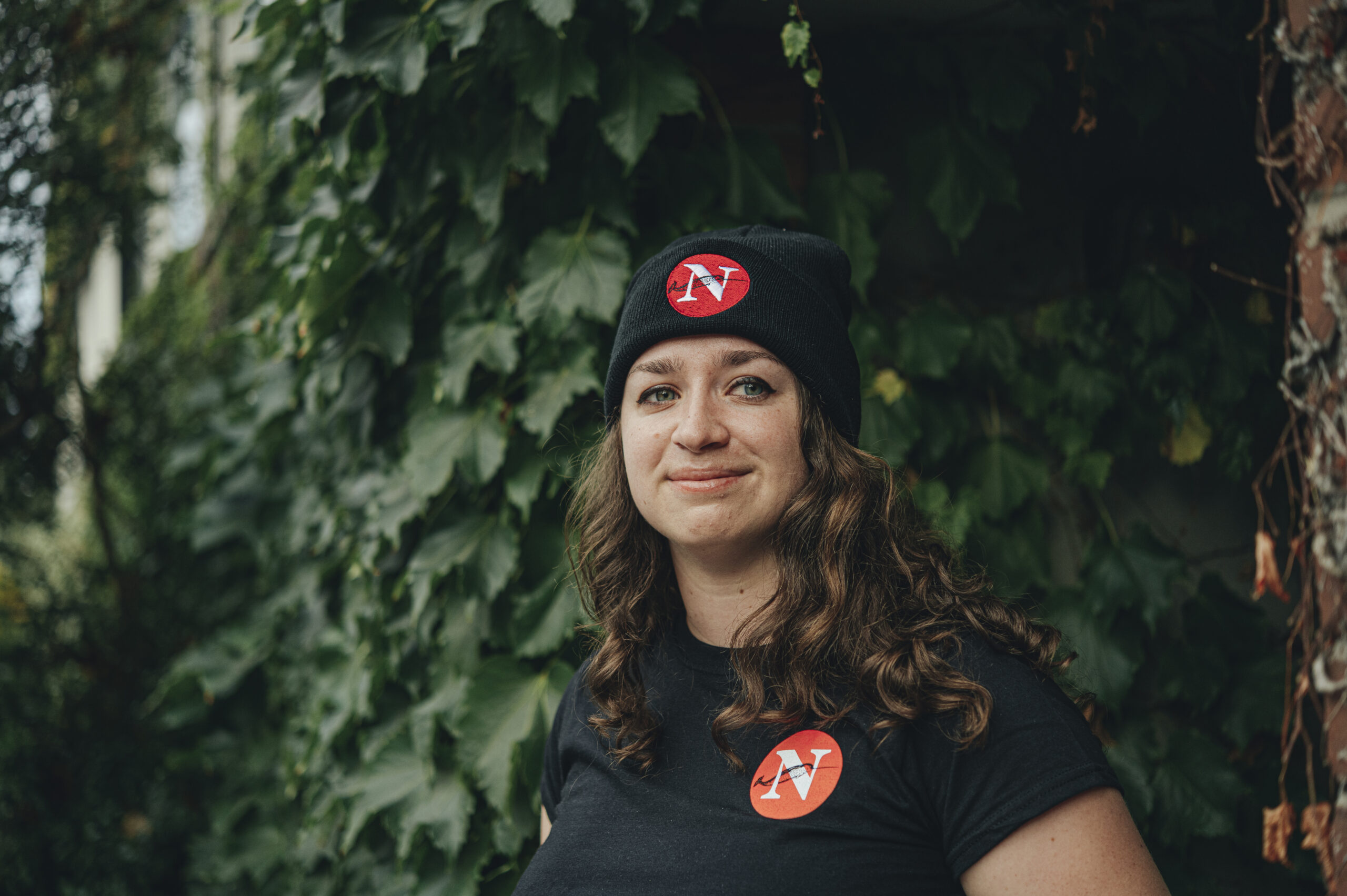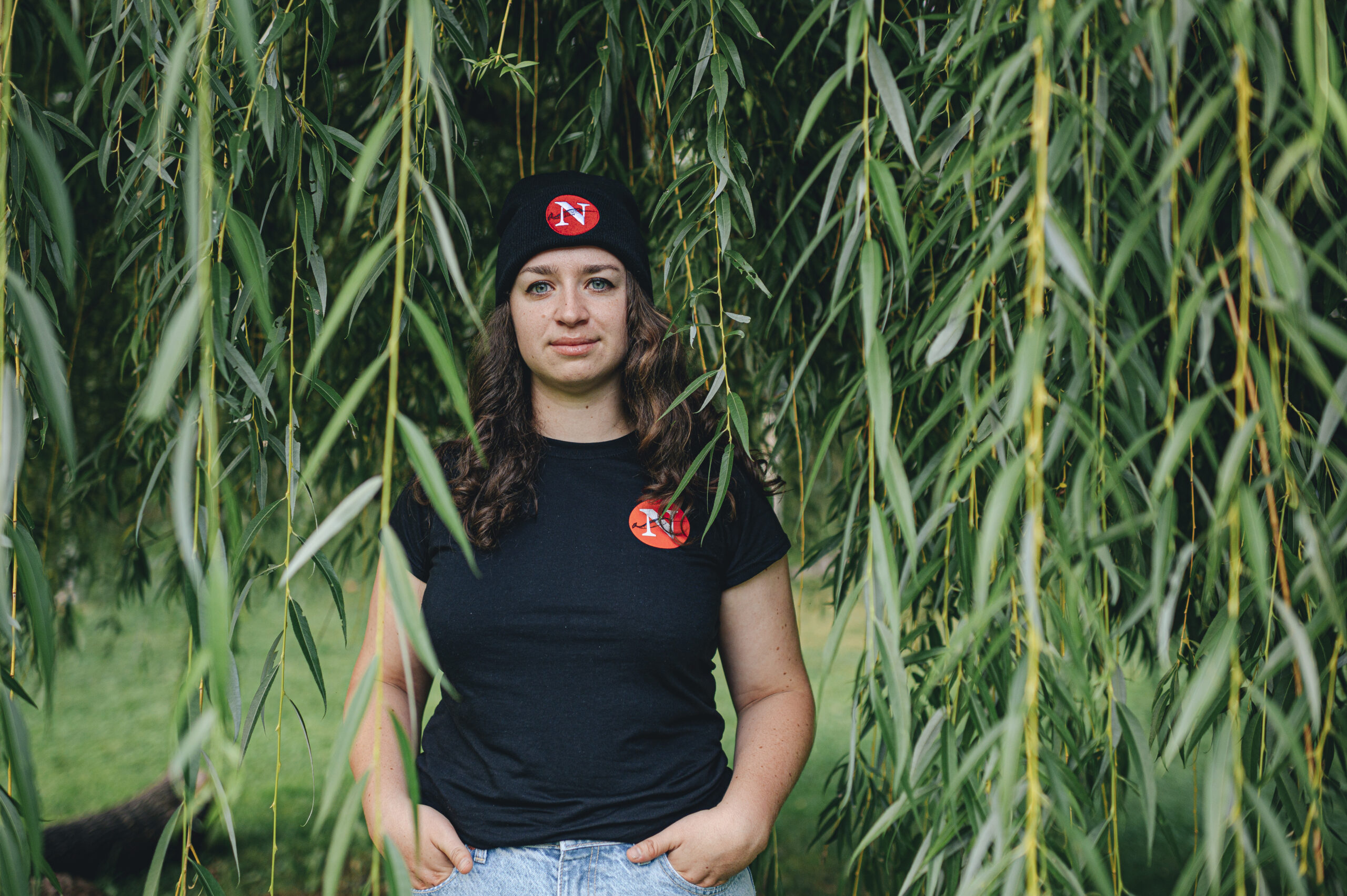
The Narwhal picks up four Canadian Association of Journalists award nominations
From investigative reporting to stunning photography, we’ve been recognized with four 2024 CAJ Awards nods...
When Emma McIntosh was in high school, she decided she wanted to become an astrophysicist. Unfortunately (or fortunately, for Canadian media), she discovered she didn’t exactly have a knack for calculus, plus her counsellor wanted her to lighten her course load.
“I figured newspaper class would be chill, so I dropped an economics class and went for that,” Emma says. “Fast forward a few months and the axis of my life had completely shifted.”
After spearheading an investigation involving leaked documents and filing her first Freedom of Information requests, she knew she had to reconsider her career choices. “It felt like something important just clicked into place. I remember thinking, ‘Wow, I wish I could just do this every day.’ ”
Many years later, Emma is now a rising star in Canadian investigative journalism, having broken story after story during her stints at the Calgary Herald, the Toronto Star and National Observer.
It was through these experiences that Emma learned how gruelling and, let’s face it, boring investigative journalism can be — but also how it can be some of the most rewarding work.
“Investigative journalism is like that scene from Spotlight where it’s just a montage of all the reporters reading and highlighting things. It’s the most boring montage ever and probably not the part of that movie that anyone remembered,” she says. “But … you build that foundation for the incredible, compelling story that you want to tell.”
In her role as a reporter in The Narwhal’s new Ontario bureau, Emma is already diving deep into environmental investigations. Luckily, we got the chance to catch up with her when she took a break from her piles of documents to chat about journalism and her terrible (or not-so-terrible) luck.
My favourite journalism is thoughtful, rich in context and visually stunning. Care goes into every line, every voice, every graphic and every photo. As much as it builds bridges and doesn’t deepen existing divides, good stories should also deliver something new and juicy. Or by bringing disparate threads together, it should help make the world easier to understand.
Above all, I think of it like a chocolate zucchini cake: you’re consuming something that’s good for you, but we’re mixing it in with so much wonderful stuff that you barely even notice.
The importance of having a life outside of journalism, and having a decent work-life balance. The times in my life when I have been burnt out are the times when I have made mistakes or when I have done work that I wasn’t as proud of. The best stories I’ve ever written — or just my favourite stories to have reported — are always the ones that are informed by being a person in the world and not just a person acting as a journalist all the time. The older I get, the more important it is to me to have more time to explore the world and be in it. Because then I come back with fresher ideas and I come back with more of an understanding of what matters to people.

When I was first getting into journalism, I didn’t find environmental journalism that interesting. I think my perception at the time was that it was a lot of stories about studies, doom and gloom and how the world was going to end. I think it was fed by the way mainstream news had been approaching it at the time, which was a bunch of one-offs.
Really, the environment is a huge political accountability story. Politicians made decisions decades ago, even centuries ago, that dramatically reshaped the world that we live in and created all these problems that we’re now facing. At the same time, the leaders who are in power today are making the same choices. They’re facing the same kind of moments where things could change and things could not. A lot of the time, the way the media has traditionally covered these stories doesn’t really explain that history or explain how it has shaped everything around us.
That is where I see environmental journalism fitting in. We have to give our readers that 360-degree view and we have to also hold the people who are making these decisions accountable.
The first one that comes to mind is definitely the Greenbelt just because I love it. At this point, I think people in my life are starting to get annoyed by me because every time I go on a road trip and see a sign that says, “Welcome to the Greenbelt,” I yell, “Shout out to the Greenbelt!” I don’t know how much longer I can do that without losing all my friends and family. But I’m still excited to write about it.
I also love getting into wonky policy stories about climate. One thing that I want to cover more that I haven’t yet is resource extraction in northern Ontario. There’s a lot of mining, there’s a lot of forestry and that stuff doesn’t really reach a Toronto or southern Ontario audience that much. So I’m super excited to dig into that more.

I’m excited to do more investigations. Before, I was covering the environment in Ontario as one person, and the decision to do an investigation always means that you’re going to miss some of the daily news that’s also really important.
Having three people whose minds are turned to this issue, I think that enables us to do more investigations, to take the time and to balance the workload so that we can do more of the stories that we need. I think the investigative stuff is what makes the biggest difference in terms of shaping public discourse.
I have had near misses with lightning twice. I do not think I’m going to get lucky a third time, so I’m very cautious when it comes to thunderstorms.
I think that wasps have it out for me — there’s a hit out on me for sure. I get stung at least once a year, which I only just learned is not normal. I actually got stung twice this year, including once on my tongue. I should have looked at my drink before I sipped it.
A common misconception about me is that I’m very outdoorsy. I certainly like the outdoors. I camp, hike, climb and canoe. But beyond the basics, I don’t really know what I’m doing. Like, have I gone into the backcountry? Sure. Did I have the gear or know what I was doing at all? No. I’m willing to reveal my secret: you don’t have to be outdoorsy, you just have to make friends who are. And be willing to do some grunt work to make up for it.
Get the inside scoop on The Narwhal’s environment and climate reporting by signing up for our free newsletter. On March 17, federal Conservative Leader Pierre Poilievre...
Continue reading
From investigative reporting to stunning photography, we’ve been recognized with four 2024 CAJ Awards nods...

The Narwhal is expanding its reach on video platforms like YouTube and TikTok. First up?...

Locals in the small community of Arborg worry a new Indigenous-led protected area plan would...
